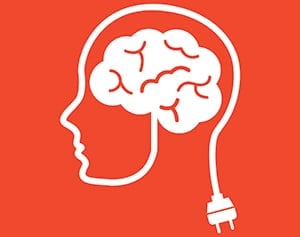 We live in exciting times. Times full of the promise of progress, where the exponential pace of technological development is both visible and beneficial to ever more of the world’s population. From e-medicine to digital education, next-generation transport systems to smart grid solutions, the near future looks to be healthier, smarter, greener, less wasteful of natural and financial resources.
We live in exciting times. Times full of the promise of progress, where the exponential pace of technological development is both visible and beneficial to ever more of the world’s population. From e-medicine to digital education, next-generation transport systems to smart grid solutions, the near future looks to be healthier, smarter, greener, less wasteful of natural and financial resources.
But in the overwhelming commercial and governmental drive towards ubiquitous connectivity, the rush to develop, implement and monetize new technologies, it’s important not to overlook the very real dangers of over-connectivity.
Our addiction to or dependence on mobile devices, social networks, the internet in general is already eroding the concept of personal privacy, even before the onslaught of wearable technology and augmented humanity. We are already knowingly or blindly sacrificing our privacy for the ease and enjoyment of always on, always available services and information. Services and information which are free of charge, but which come at a price: our personal data.
We’re trading our data for the convenience of connectivity, and as technology moves inside us, as users and devices become integrated – from smart watches to health monitors to iris implants – the dangers are growing alongside the potential for collective good and wealth creation.
The technology is already there to lead us to becoming information ciphers, constant victims of marketing and surveillance, via ATM machines and mobile phones to drones, face recognition, policemen equipped with Google Glass. From instant recognition to the dystopian reality of your every action and decision predicted and judged on the basis of complex algorithms – without freedom or recourse.
As a result, privacy is fast on the way to becoming a paid-for product, such as the hotels charging a premium to ensure guests are truly unavailable and unconnected; encrypted mail services; or the private networks arising outside of the mainstream telco operators. It’s a growing and lucrative niche market. But how fair is this? Should the world be divided by default in into those who can afford privacy and the majority who are stripped digitally naked?
And as awareness of the failure of privacy – the disbenefit of big data – grows, there is a very real danger of a retrenchment, of people withdrawing from the internet and its advanced products, applications and services, destroying the enormous potential of universal good through lack of universal participation.
Add to that the deepening in the near future of the divide between the digital haves and have-nots. If you think not having access to a mobile phone is a major disadvantage, imagine how great the inequality when you can’t afford the technological implants your colleague or neighbour has, the immediate access to information, communication and contacts. It’s a whole new slant on the class system: the digitally augmented human versus the limited human-only human.
Technology itself, of course, has no ethics. And it’s no good leaving regulation of technology and its unintended consequences to the commercial world. Connectivity is big business, a giant money-making machine of equipment, services, advertising, analysis, products, an integrated and potentially enormous business system. Good for consumers, good for business, good for GDP.
It’s a set of complex scenarios that we cannot help to solve at the level of the individual user. The use and abuse of data needs urgent collective action, at governmental and intergovernmental level. It is down to governments to look beyond the benefits of connectivity to the downside of digital obesity: protecting its people from dangers and threats as far as possible is the duty of government, implicit in its contract with the governed. Technology, like nuclear power, has tremendous potential for good, yet can also cause harm on an enormous scale. Dealing with technology in the near future also calls, like nuclear power, for international standards or consensus, a digital bill of rights or citizens’ agenda to protect us from being over-connected or digitally naked.
Beyond the money and the perpetual spiral of technological advancement, we need to cleave to the principle of collective good. We need to see the human purpose beyond and above the scramble for monetization. Just because we can produce it and make money from it does not make technology good for people.
Increasing awareness of these factors, building understanding of the great new world of opportunity technology is opening up for us – and the need to be careful, to consider the consequences, to act collectively, to regulate fairly, wisely and in a timely manner – this is what the Leadership Summit on the Future at ITU Telecom World 2014 in Doha this December is all about.
I look forward to seeing you there!
